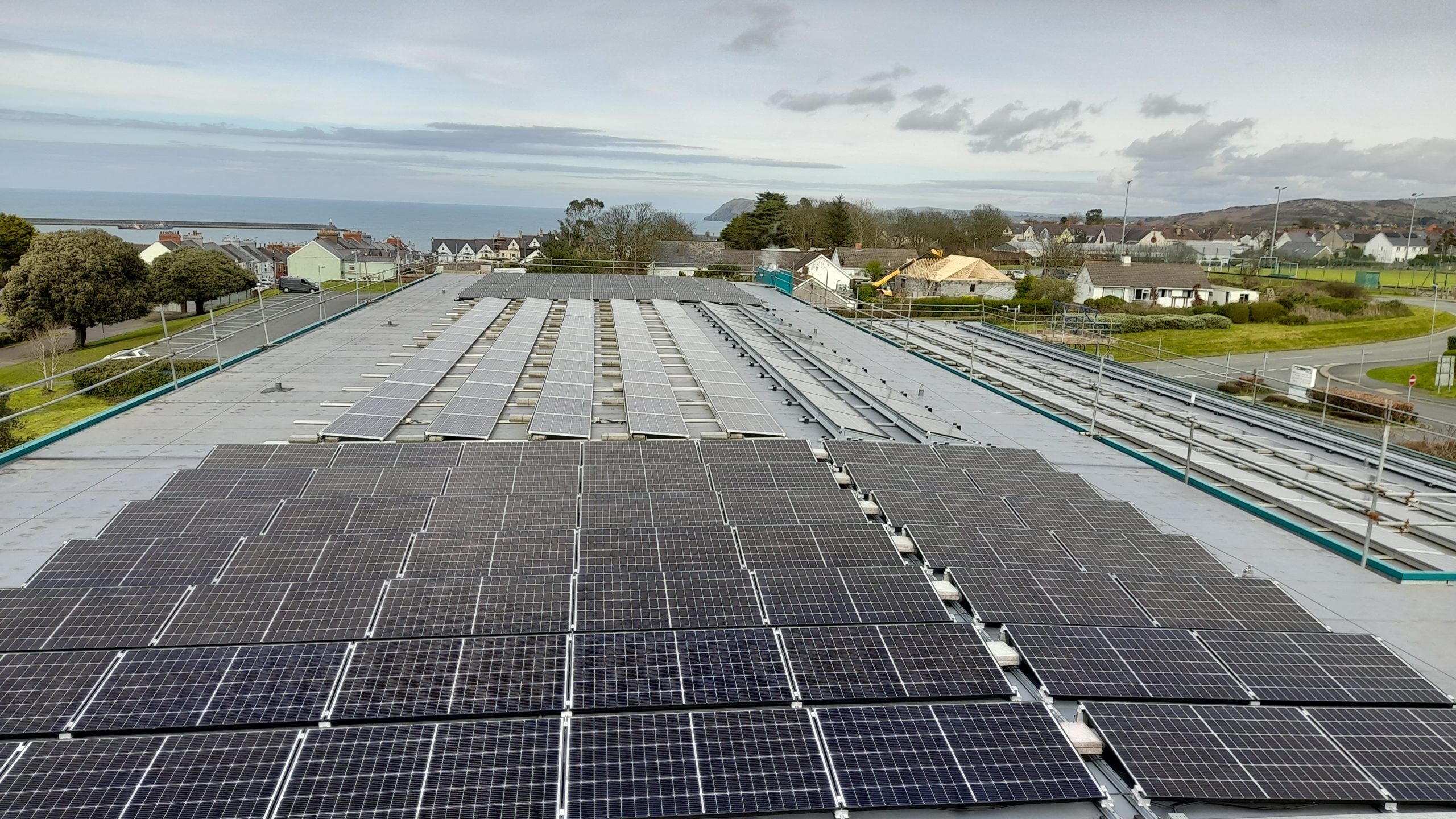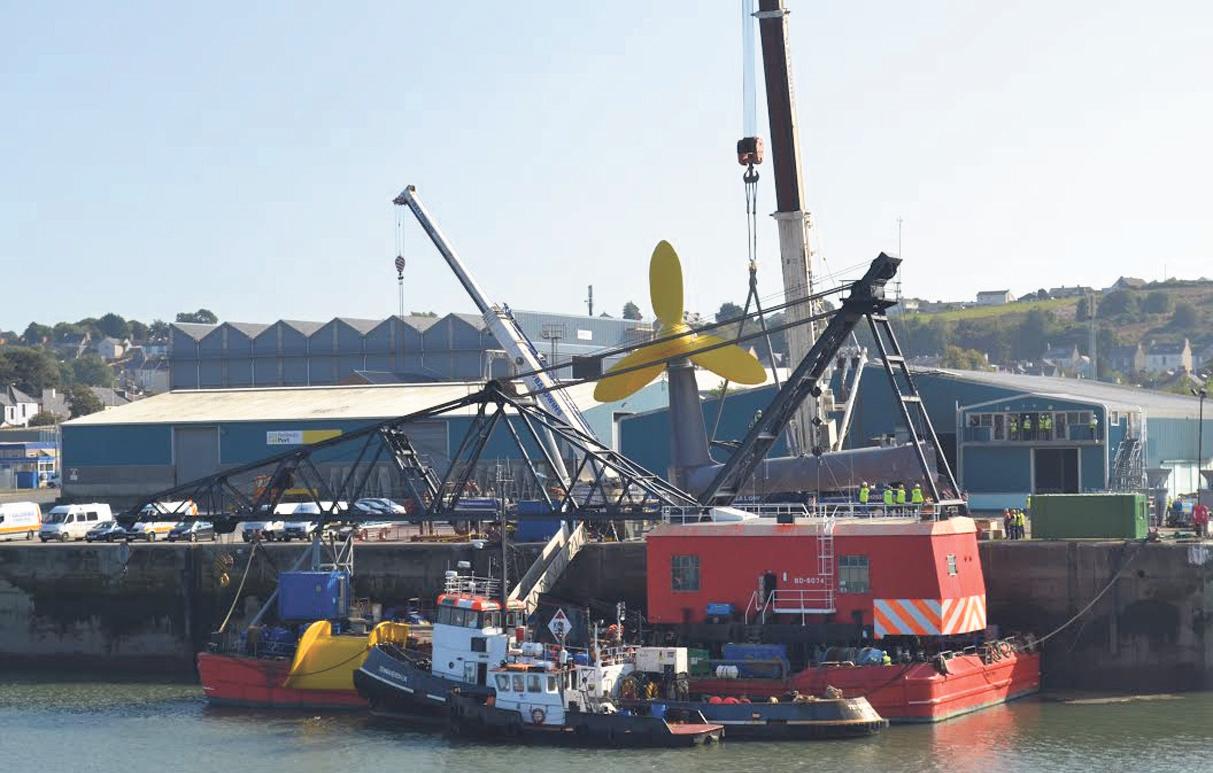Climate
High energy prices? Discover the natural low cost energy solution!

Celtic Green Energy reveals the benefits of Solar power.
In 2022, the Ukraine war caused an unprecedented energy crisis highlighting the UK’s dependence on Russian oil and gas that exposed our vulnerability to fuel security. Fuel prices rocketed, businesses folded and families were plunged into a cost of living crisis. The cost of fuel impacted on transport, raising food, heating, motoring and consumer goods prices. The general public became energy anxious and the Government had to step in to try to help the most vulnerable with new energy and fuel campaigns. This vulnerability to energy security prompted the Government into spearheading home grown renewable energy solutions with the extended development of windfarms, nuclear and solar. Advancements in technology and falling equipment prices has suddenly made solar power systems more affordable and increasingly attractive to consumers.
Renewable energy systems are widely seen as the way forward for a greener economy, lowering the impact on the environment, lowering carbon and reducing costs. A number of affordable solutions are now available to the general public and businesses that can help in the quest for climate change and energy efficiency. One example is where the Government is keen to promote the sale of electric vehicles to meet strict G4 net zero carbon goals, however with this interest, widespread confusion and anxiety follows. Never before terminology such as ‘range anxiety’ and ‘charge-point anxiety’ are appearing with the growth in electric vehicles and a weak infrastructure.
Fuel poverty within a poor housing stock is raising environmental concerns and the Government has addressed this issue with the availability of renewable energy solutions to the less fortunate on benefit or low income through the ECO4 grant scheme. This however has caused a ripple effect of scurrilous opportunists trading off FREE solar claims to all, when in fact, all but a few are actually entitled to the scheme. Even when those who are fortunate to qualify, find that the installation teams are shipped in from far away and leave with little or no support for the householder. When systems fail, they are left with little or no aftercare and are left facing a costly ‘white elephant’. Fortunately the industry regulator MCS Certification has strict guidelines for the Solar Power installation service and consumers are advised to check out their website for approved and registered suppliers.
Understanding the needs of the consumer and offering a strict code of conduct is essential for a reputable installer. West Wales based Celtic Green Energy has an enviable reputation serving the region for the last decade with renewable energy solutions for domestic, business and farming sectors. “We have people from all walks of life approach us with their energy concerns” quotes Sales Director Stuart Jupp. “What’s reassuring about my job is that I can give them genuine help to secure their future, their energy bills and relieve their anxieties. Anyone who uses electricity has potential to use solar power, although some properties may be ineligible due to prevailing conditions such as a ground floor flat!”
For the uninitiated, a solar power scheme is an installed system that includes a series of large flat photovoltaic panels that are placed on a southward facing roof that captures the suns rays – even on a cloudy day. The rays stimulate the photovoltaic cells to generate electricity that is then processed through an inverter ready to be fed into the property for use. Any surplus electricity is fed back to the national grid generating a small income, but it is now recommended that batteries are fitted to capture this latent energy and reuse at night.
As every property is different and every consumer has varying energy use, every solar panel system is tailored to the individual’s needs. A good starting point to specify the ideal scheme is based on a properties existing energy consumption where a system will be designed to match those needs. A Solar Surveyor will visit the site to identify the location, its constraints and discuss with the customer their objectives. A detailed quote and energy performance projection will be offered to the customer that will help their decision process. Most business installations will pay back their investment within 2 years, whilst domestic schemes will pay back the investment within 4 to 5 years – based on the prevailing energy costs.
The main use of energy during the winter months is to provide heat, whether that is gas, coal, oil or electric. The fossil fuels are on the Government’s hit list to reduce carbon emissions, so is keen to encourage the sale of Air Source Heat Pumps which are three times more energy efficient than other heat sources. These are large fan assisted units that sit outside the property and reverse condense cold air into heat (the opposite action of a refrigerator). The Air Source Haet Pump will then provide sufficient heat to power a conventional central heating system, but given the nature of the beast, operates slightly differently to the traditional method of a gas or oil system. As these require electricity to power them, they do consume energy 24/7 – however, with a solar power system, they can undertake this free of charge during the daytime and if a solar battery system is installed, can run free at night too.
Solar power is seen as the great saviour for many as it offers a perfect solution for the nation, businesses and the private individuals. With it’s green credentials, Solar is an ideal gateway product that provides power for many energy intensive applications such as heating, refrigeration and charging that ultimately helps reduce carbon, the environment and cut costs. The last year has seen a dramatic rise in the sales of electric vehicles, and a subsequent rise in the installation of home EV charging points. Add a solar system with solar batteries to the equation, and consumers will be able to charge their cars for free and dramatically cut the cost of their motoring.
Solar Batteries are now seen as the key essential accessory for any Solar power system as they help maintain provision of energy after dark. With advancements in technology falling off the back of the electric vehicle industry, there is now a wide variety of choice for batteries offering various degrees of performance, durability, cost, longevity and warranty. Any reputable installer will be able to advise the virtues of the right battery for the individual that best suits their lifestyle demands and budget.
Sum up…
Next time you awake to a fresh morning cuppa and look out to a sunny day, remember that sunshine could be providing you with free electricity to power your kettle – as well as your washing machine, cooker, television, charging your electric car and lots, lots more! The possibilities for solar power are endless, so if you are concerned about your rising energy costs and want to do something about it, make your next step be a phone call to Celtic Green Energy who will be able to advise you on the best way forward. You can call their energy help line 01269 500388 or learn more and visit their website at www.celticgreenenergy.co.uk
Here’s to brighter tomorrows and sunnier savings!
Climate
Pembrokeshire announced as new location for Atlantic rainforest restoration

THE WILDLIFE Trust of South and West Wales (WTSWW) will begin restoring lost Atlantic rainforest in Pembrokeshire thanks to a long-term partnership with Aviva.
Today, Monday 15th July, WTSWW reveals plans to improve habitats and recreate temperate rainforest at Trellwyn Fach near the Pembrokeshire coast. Rainforests used to cover much of the west coast of Britain though were destroyed over hundreds of years and today, only fragments remain.
Rainforest restoration forms part of a wider programme of nature-based projects to remove carbon from the atmosphere and help nature recover, funded by Aviva’s donation. Communities in Pembrokeshire will be closely involved in the project, with plans for volunteering, educational and employment opportunities, as well as improved access to nature.
The project at Trellwyn Fach is part The Wildlife Trusts’ Atlantic rainforest recovery programme, which is supported by a £38 million donation from Aviva.
The Aviva donation supports the programme to restore temperate rainforests in areas where they used to grow along the damper, western climes of the British Isles. Other rainforest restoration projects have been announced in Devon, North Wales and the Isle of Man.
Sarah Kessell, Chief Executive at WTSWW said told The Pembrokeshire Herald: “We’re delighted this rainforest restoration project at Trellwyn Fach can get started. This site is ideally situated in the Gwaun valley, already connected to Celtic rainforest remnants and giving us the opportunity to buffer and extend this amazing habitat as well as improving access for the local community. These are exciting times!”
Leah Ramoutar, Director of Environmental Sustainability, Aviva, added: “We’re proud to see the Wildlife Trust add another site to the rainforest restoration project, helping Wales become more climate ready. The site in Trellwyn Fach will connect with existing examples of this precious habitat, reestablishing natural corridors to benefit wildlife and add more natural beauty to this stunning part of Wales. It will also provide flood resilience to nearby homes and businesses as well as green jobs and volunteering opportunities to the local community.”
Trellwyn Fach is 146 acres, next to the village of Llanychaer, and just 2 miles from Fishguard. The southern tip of the site connects with the Gwaun Valley woodland, itself a remnant Celtic rainforest. The north end runs onto open moorland on Dinas mountain. From the top of the site there are views of the Preseli Mountains. There is little diversity on the majority of the land with nearly all fields being of semi-improved rye grassland that were grazed by sheep, but there are some wetter areas and some lovely, mature hedgerows of blackthorn, hawthorn, hazel, oak, gorse and holly. Overall, the potential to improve habitats for wildlife is high.
WTSWW’s plans to improve the wildlife value of the new nature reserve through low-intensity grazing of some areas, working with local graziers. The Trust’s conservation team will monitor changes in biodiversity through habitat and species surveys including breeding bird surveys and butterfly transects.
Around two-thirds of the site will become broadleaved woodland through planting and natural regeneration, to buffer the existing woodland and to support the wider connectivity of remnant Celtic rainforest in the landscape. This woodland corridor leads in an arc through the Gwaun Valley, to Pengelli Forest (a WTSWW nature reserve) and the latest plans will contribute greatly to increasing the area of temperate rainforest in north Pembrokeshire. This complements recent work undertaken by Cwm Arian’s ‘Growing Better Connections’ project which engaged with private landowners in the same area to plant up land and/or hedgerows to link woodland habitats in north Pembrokeshire.
A bridleway runs across the bottom part of the site and there is scope to connect walking trails up to Dinas mountain to improve pedestrian access from Llanychaer. There are excellent opportunities to involve local communities in the development and monitoring of this new nature reserve.
Climate
Solar power partnership lighting up community energy fortnight

THE PARTNERSHIP between Pembrokeshire County Council and a community energy charity has recently helped two sites reduce costs and carbon emissions with solar panels.
During community energy fortnight, running until July 14th, the Green Pembrokeshire team is highlighting the second phase of work with Egni Co-op, a community energy organisation that installs rooftop Solar PV systems.
Egni cover the cost of installation and then sell the generated electricity to the building owner at a discount, with all profits generated used to fund further projects and environmental educational programmes.
In early 2023 Egni was awarded the contract to install systems on around 20 schools and leisure centres across the County and will manage and maintain the systems for 20 years.
It’s estimated that the solar panels will prevent the emission of approximately 200 tonnes of carbon dioxide per year and should save the schools and leisure centres £180,000 per year in energy costs.
This second phase has seen Fishguard Leisure Centre add a 170kW system to its existing 50kW provision and the energy will be sold to the building at a reduced rate. With the combined systems generating around 187,000 kWh a year, nearly 40 tonnes of CO2 will be offset.
During the first part of the month more than half the Centre’s electrical energy has been provided by the solar panels and daytime dependence on the grid is almost zero during the summer.
Also boosting its solar panel system is Tavernspite School where a 27kW system has been installed with discounted electricity reducing dependence on the electrical grid and offsetting approximately five tonnes of carbon emissions per year.
The school is one of many also benefiting from Egni’s education programme, alongside Sustainable Schools Pembrokeshire.
Egni Workshops challenge pupils to make the connection between energy and climate change, and school to reduce their energy through campaigning for behaviour change.
Cabinet Member for Place, the Region and Climate Change Cllr Paul Miller said: “These two sites are the latest to benefit from this innovative scheme that is helping the Council and its buildings make carbon savings, as well as saving money, without capital costs.”
Jenny Carlisle, Egni Development Manager, said: “We are delighted to be working with the Council and young people in Pembrokeshire schools. It’s a great example of co-operation. We all need to work together to tackle climate change and keep money in the Welsh economy.”
Climate
Marine Energy Boosts Welsh economy by £30m, Pembrokeshire leads

IN the 2023/24 financial year, Wales’ marine renewable energy sector delivered a substantial £29.9 million to the Welsh economy, as revealed in the latest State of the Sector Report by Marine Energy Wales. This brings the total cumulative spending and investment in the sector to an impressive £292.9 million.
Despite a notable reduction from the previous year’s £103.4 million, this year’s figure remains the second highest annual spend recorded to date. The decline is attributed to the conclusion of European grant funding and the completion of significant infrastructure projects, such as the Morlais development on Anglesey, which inflated last year’s expenditures.
Jeremy Miles, Cabinet Secretary for Economy, Energy and Welsh Language, expressed optimism about the sector’s future: “Wales is well placed to be at the forefront of marine energy technologies. Maximising this opportunity is an important step towards our path to net zero, attracting investment and creating highly skilled and well-paid jobs, particularly in coastal communities.”

The report highlights the considerable contribution of the tidal stream sector, which has injected £116.1 million into the Welsh economy since 2019, largely due to the Morlais infrastructure and the efforts of tidal kite developer Minesto.
Anglesey and Pembrokeshire are at the forefront of this growth, with Anglesey leading with £103.8 million in investments to date, closely followed by Pembrokeshire at £97 million. Swansea is also emerging as a key player, with £39.2 million invested in marine energy development.
The sector currently sustains 429 full-time jobs across Wales, with Pembrokeshire employing the highest number of people in the sector at 260 FTEs. This is due to the county’s established supply chain, which includes fabricators, engineers, and environmental consultants. Both Swansea and Anglesey also contribute significantly to employment in this sector.
Tam Bardell, Chair of Marine Energy Wales, underscored the importance of maintaining momentum: “We have just over a decade to meet the Welsh Government’s target of 100% renewable energy by 2035. While generating around 59% from renewable sources, we still have a long way to go. This report is not just a reflection of our achievements but a call to action.”
The future of the sector looks promising, particularly for tidal stream and floating offshore wind (FLOW), with a projected £486 million spend over the next five years in Wales. Continued support from governmental policies and increased private sector investment are essential for overcoming current barriers and ensuring Wales’ progression as a global leader in marine renewable energy generation.
As the sector grows, improving gender balance and diversifying roles remain positive steps forward, ensuring the industry’s sustainable development and its pivotal role in Wales’ economic and environmental future.
-

 Education5 days ago
Education5 days agoMilford Tesco worker achieves Oxford dream and lands top legal job
-

 Crime4 days ago
Crime4 days agoHaverfordwest man admits having nearly 1000 child and animal images
-

 Crime4 days ago
Crime4 days agoYouth set to appear in court over serious sexual offences
-

 Crime4 days ago
Crime4 days agoPolice investigating after man injured during altercation in cemetery
-

 Education4 days ago
Education4 days agoPupils delight in ice cream treat from Pembrokeshire’s number one van
-

 Crime4 days ago
Crime4 days agoTown centre ‘stinking of skunk’ as police strip cannabis farm
-

 Crime3 days ago
Crime3 days agoFag-butt police court summonses spark debate in Pembrokeshire
-

 News6 days ago
News6 days agoProposal to give firefighters a council tax discount to go to Cabinet




























